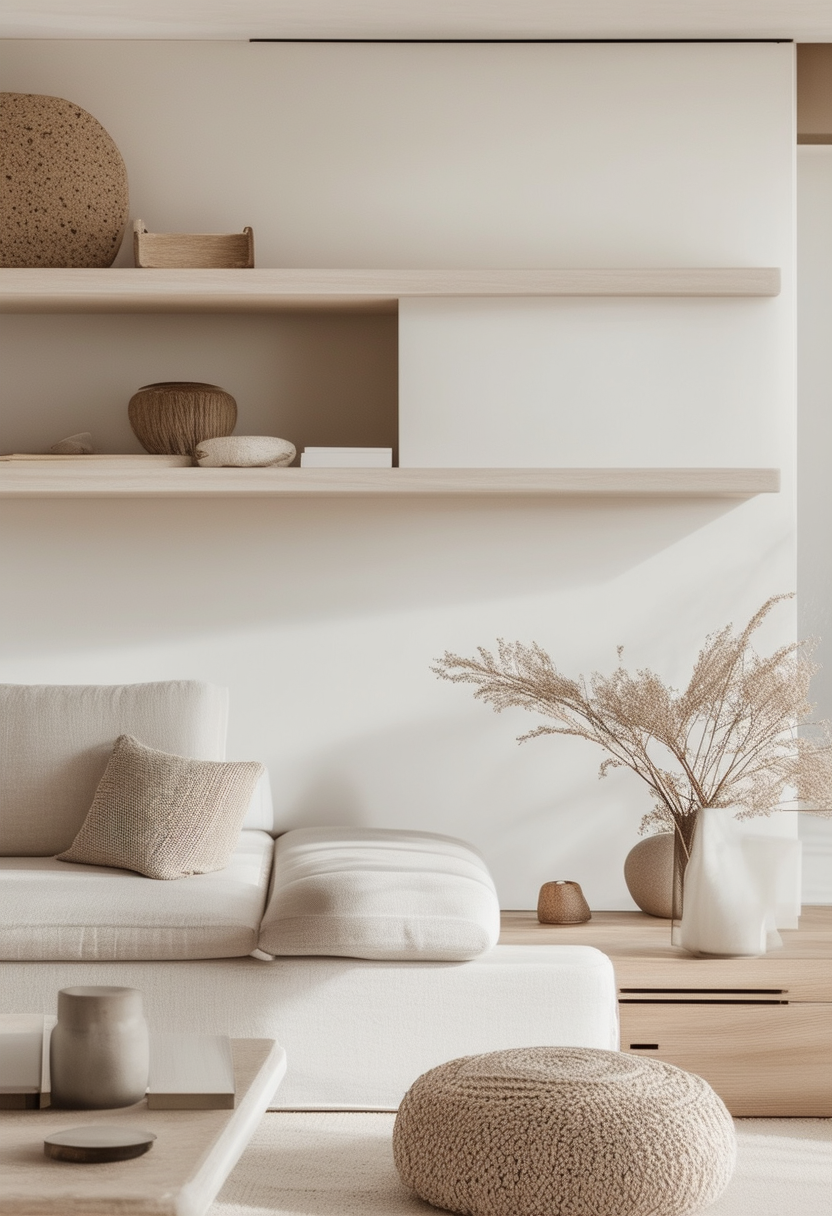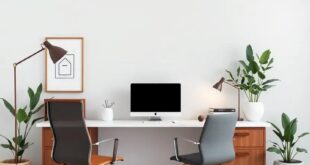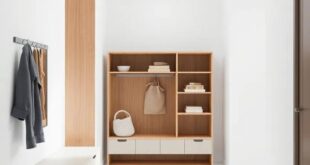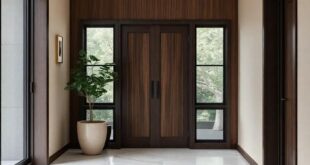Transforming your living space into a stylish sanctuary doesn’t have to be a daunting task. Whether you’re a seasoned design aficionado or a novice looking to refresh your surroundings, our list of 24 Chic Interior Design Ideas is here to inspire your next project. From striking color palettes to innovative furniture arrangements, each idea offers a fresh perspective on how to elevate your home’s aesthetic. Expect to discover practical tips, budget-friendly suggestions, and a few bold statements that can help you express your unique style. Dive in, and let’s reimagine the spaces you inhabit with flair and creativity!
Embrace minimalism for a clutter-free interior design aesthetic

Minimalism champions simplicity and functionality, transforming your space into a serene retreat. Begin by selecting a neutral color palette that soothes the eyes—think shades of white, beige, and soft grays. This foundation helps create a spacious atmosphere, allowing natural light to bounce around the room. To emphasize this tranquility, keep furniture pieces streamlined and choose multifunctional items, such as a coffee table with storage or a bed with built-in drawers. A well-placed mirror can also enhance the sense of space while adding a touch of elegance, reflecting both light and style.
As you curate your interior, focus on the essentials, removing any items that don’t serve a purpose or add value. Use decorative accents sparingly; a single piece of art on a wall or a uniquely shaped vase can make a bold statement without overwhelming the senses. Incorporate natural materials—like wood, stone, or linen—to bring warmth to your minimalist design. Lastly, ensure that every space feels thoughtful and intentional by embracing open shelving or neatly arranged display areas that highlight your favorite items without the chaos of excessive décor. For more tips, explore resources at minimalism.com.
| Tip | Description |
|---|---|
| Choose Quality Over Quantity | Invest in fewer but higher-quality items that are timeless and versatile. |
| Declutter Regularly | Set aside time weekly or monthly to reassess your belongings and keep only what you love. |
| Create Defined Spaces | Use rugs or furniture arrangements to define different areas within open floor plans, maintaining clarity in your layout. |
Incorporate bold colors to energize your interior design space
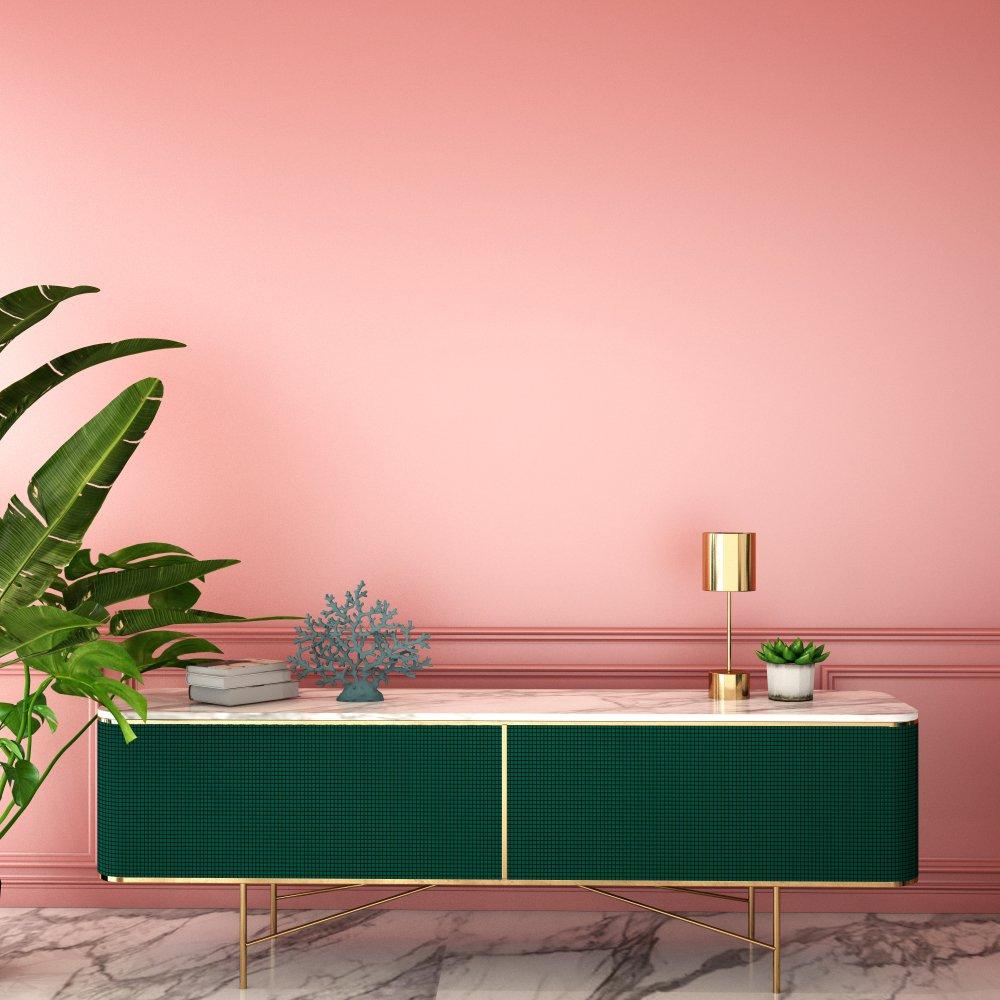
Add a touch of excitement to your home by integrating bold colors into your design scheme. From striking accent walls to vibrant accessories, these hues can transform any room into a lively space. Consider using deep blues, rich greens, or fierce reds. These colors can set the mood of your room—cool and calming or warm and inviting—depending on your choice. To make the most of these vibrant shades, think about the elements you want to emphasize:
- Accent Walls: Use a bold color to create a statement wall, bringing depth and an intriguing focal point to your space.
- Furniture Pieces: Invest in a bold-colored sofa or armchair to serve as a conversation starter.
- Art and Decor: Incorporate colorful art pieces or accessories like cushions and throw blankets to add personality and intrigue.
This bold approach not only revitalizes the aesthetic but also energizes your mood! Pair vibrant colors with complementary shades to maintain balance and harmony within the space. Explore inspiration from different design styles and consider the psychological effects of color when selecting your palette.
| Color | Effect | Best Used In |
|---|---|---|
| Cobalt Blue | Invigorates and inspires creativity | Living Rooms, Offices |
| Mustard Yellow | Uplifting and cheerful | Kitchens, Dining Areas |
| Crimson Red | Stimulates energy and passion | Entryways, Bedrooms |
For more inspiration on using bold colors in interior design, check out Architectural Digest.
Layer textures for depth in your interior design approach
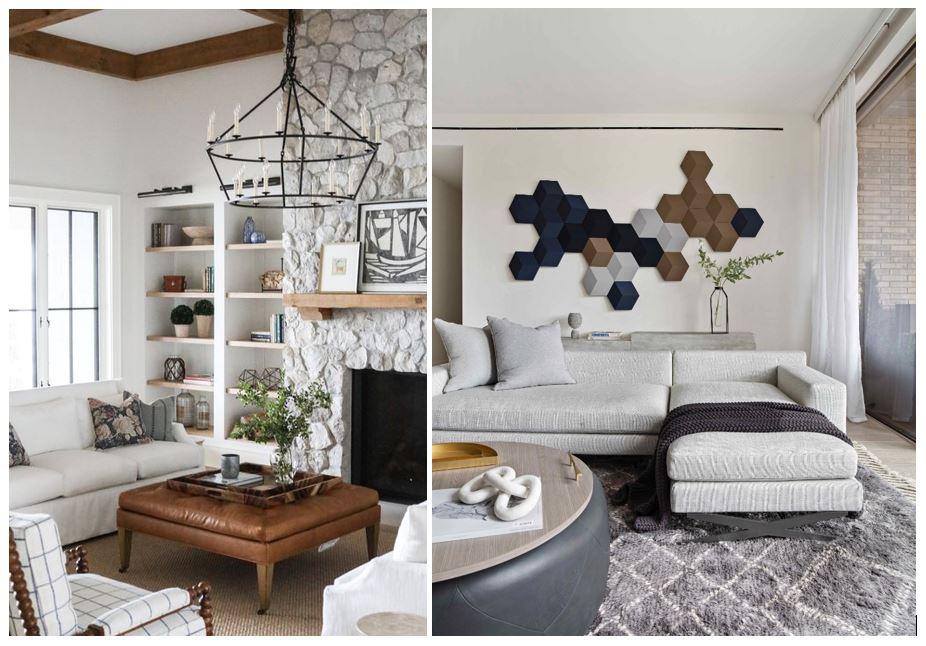
Creating a visually appealing space goes beyond just choosing the right colors. By incorporating a variety of layered textures, you can add depth and interest that will elevate your interior design. Think about combining soft fabrics like velvet or linen with more rigid materials such as wood or metal. This contrast helps to create a multidimensional look. Don’t hesitate to mix textures in your cushions, throws, and rugs; a chunky knit throw on a smooth leather chair can create a strikingly cozy vibe. Additionally, incorporating elements like baskets, woven rugs, or ceramic vases can introduce natural textures that soften the overall aesthetic.
Using a mixture of patterns and finishes is also essential in designing a layered space. Pair geometric prints with floral designs or matte finishes with glossy ones. Consider adding metallic accents through decor items like picture frames or light fixtures to introduce a bit of shine amidst softer surfaces. Use an assortment of elements, such as an industrial-style lamp paired with a plush, patterned sofa, to create a conversation-worthy gallery in your living area. For a visual guide on textures, check out House Beautiful for inspiration.
Use oversized art pieces to elevate interior design impact
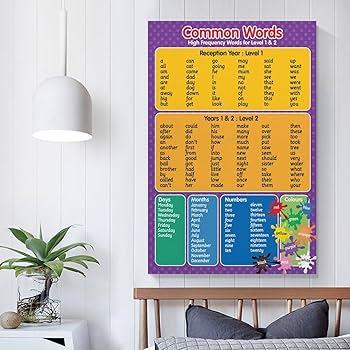
Introducing oversized art pieces into your interior design can transform a space dramatically. These bold statements create focal points that draw the eye, infusing your room with personality and flair. Whether you choose a gigantic painting, a large-scale photograph, or a sculptural installation, oversized art contributes an atmosphere of sophistication. Imagine a vibrant abstract canvas stretching across an entire wall or a striking black-and-white photograph commanding attention above a minimalist sofa. The contrast of size against surrounding décor adds depth and intrigue, enhancing the visual narrative of your home.
When selecting oversized art, consider balancing scale and color with your existing furnishings to ensure harmony. Here are some tips for incorporating large artworks:
- Choose a Theme: Align artwork with your room’s theme or color palette for a cohesive look.
- Placement: Hang at eye level and ensure adequate space around the piece to prevent overcrowding.
- Layering: Use oversized art in combination with smaller pieces for a curated gallery feel.
- Lighting: Illuminate the artwork with appropriate lighting to enhance its features and textures.
To inspire your selection, consider a visit to Artsy, where you can explore an extensive collection of oversized artworks and discover pieces that resonate with your aesthetic vision. The right piece can be an anchor in your design, setting the tone for the entire room while allowing the rest of the decor to shine without overwhelming the senses.
Blend vintage elements into your modern interior design scheme
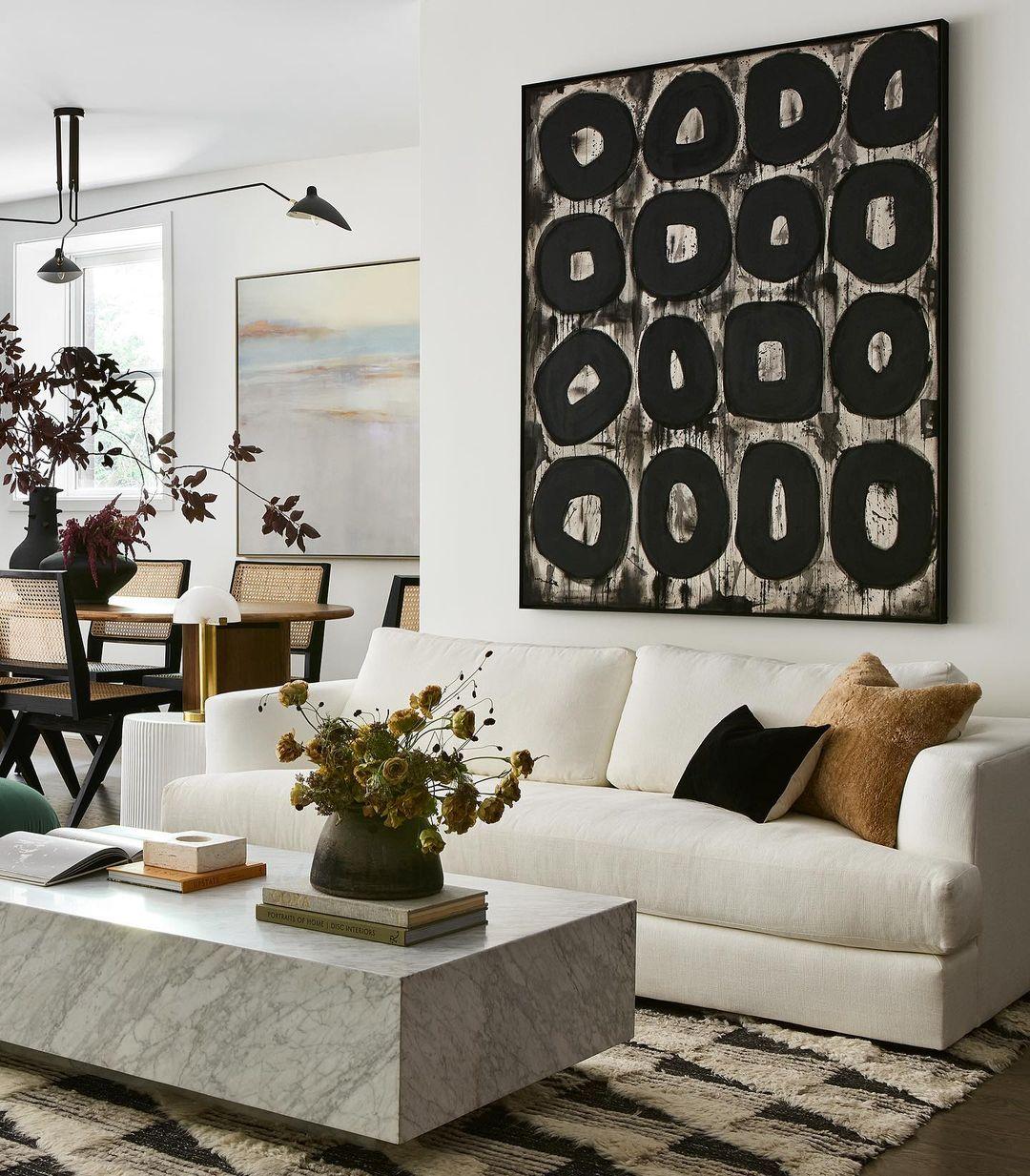
Incorporating vintage elements into a modern interior design scheme can create a harmonious balance between the old and the new. Start by choosing statement furniture pieces that exude character and history. Think about a mid-century modern armchair or a vintage wooden side table that contrasts beautifully with sleek contemporary lines. Layering textures is also key; mix distressed leather, rich velvets, or even woven textiles reminiscent of a bygone era to add warmth and depth to your space. Accessories such as antique clocks, retro lamps, or framed black-and-white photographs can serve as conversation starters while accentuating the charm of the room.
Wall treatments can play a significant role in blending these styles effectively. Consider using vintage-inspired wallpaper with modern motifs or a fresh coat of paint that complements your curated decor. A carefully curated gallery wall featuring classic art prints alongside contemporary works can create a visually stunning focal point. For the finishing touch, explore adding unexpected elements like a vintage trunk as a coffee table or a stylish, retro bar cart to your modern lounge area. By thoughtfully selecting these details, you’ll create a space that feels both timeless and on-trend. For more styling ideas, check out House Beautiful.
Try an open floor plan for flexible interior design possibilities
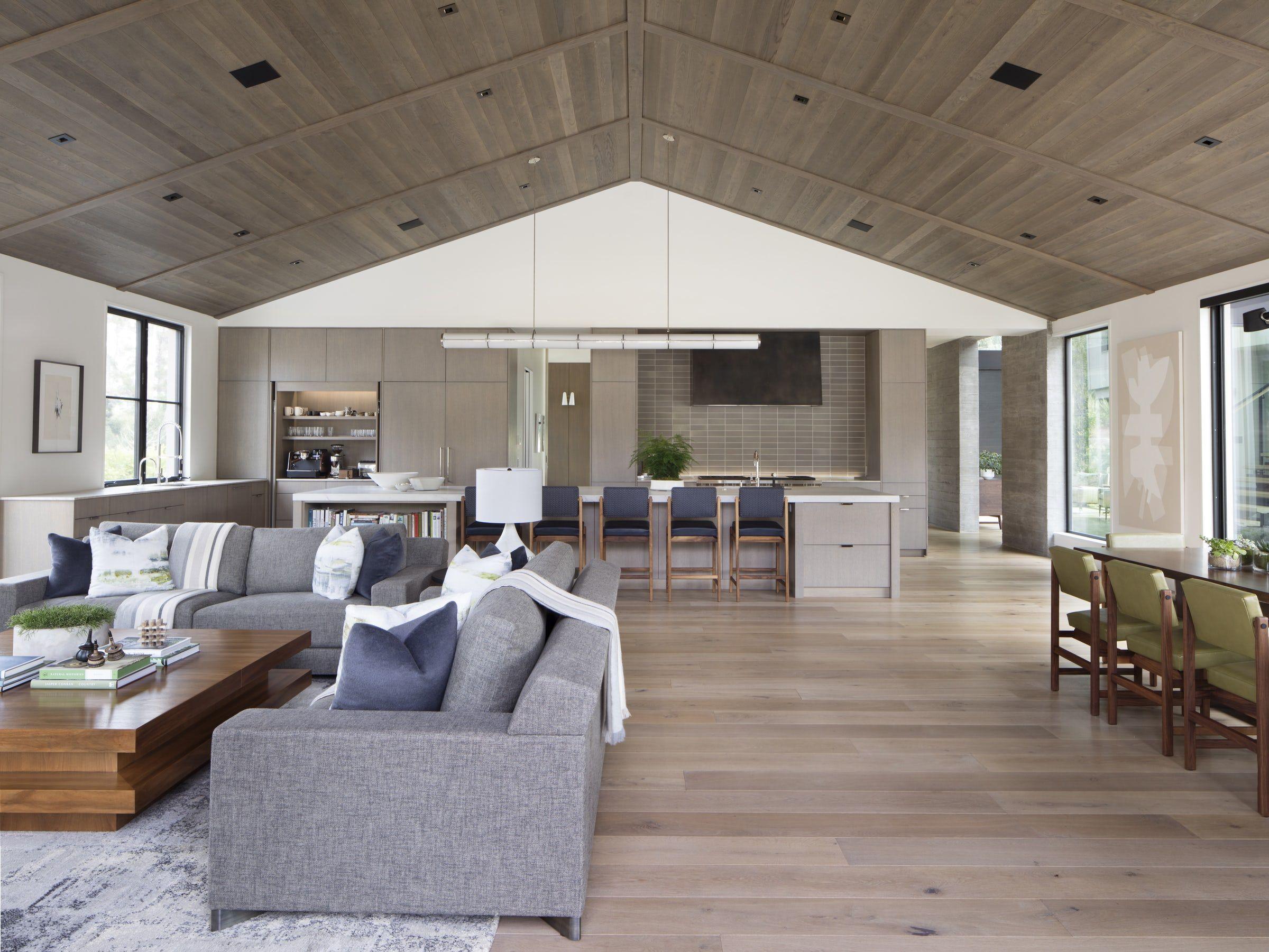
Embracing an open floor plan allows for a seamless flow between spaces, creating a sense of unity and freedom in your home. With fewer walls to divide, you can easily arrange furniture in unexpected ways, establishing cozy conversation areas or functional workspaces. This arrangement not only enhances mobility but also maximizes natural light, brightening even the dimmest corners of your home. Consider using multi-functional furniture such as a stylish ottoman that doubles as a storage unit or sleek shelving that serves as a room divider without compromising openness.
Open floor plans also offer endless opportunities for creativity in decor. Mix and match textures and colors to create distinct zones within the same area while still maintaining a cohesive look. Incorporate area rugs to define different functions—like a vibrant geometric rug under a dining table or a soft, plush rug in a lounge space. You can even play with varying ceiling heights and lighting fixtures to add depth. For a guide on visually expanding your horizons, explore resources at architecturaldigest.com to transform your spaces into chic environments that reflect your personality.
Mix and match patterns to showcase your interior design creativity
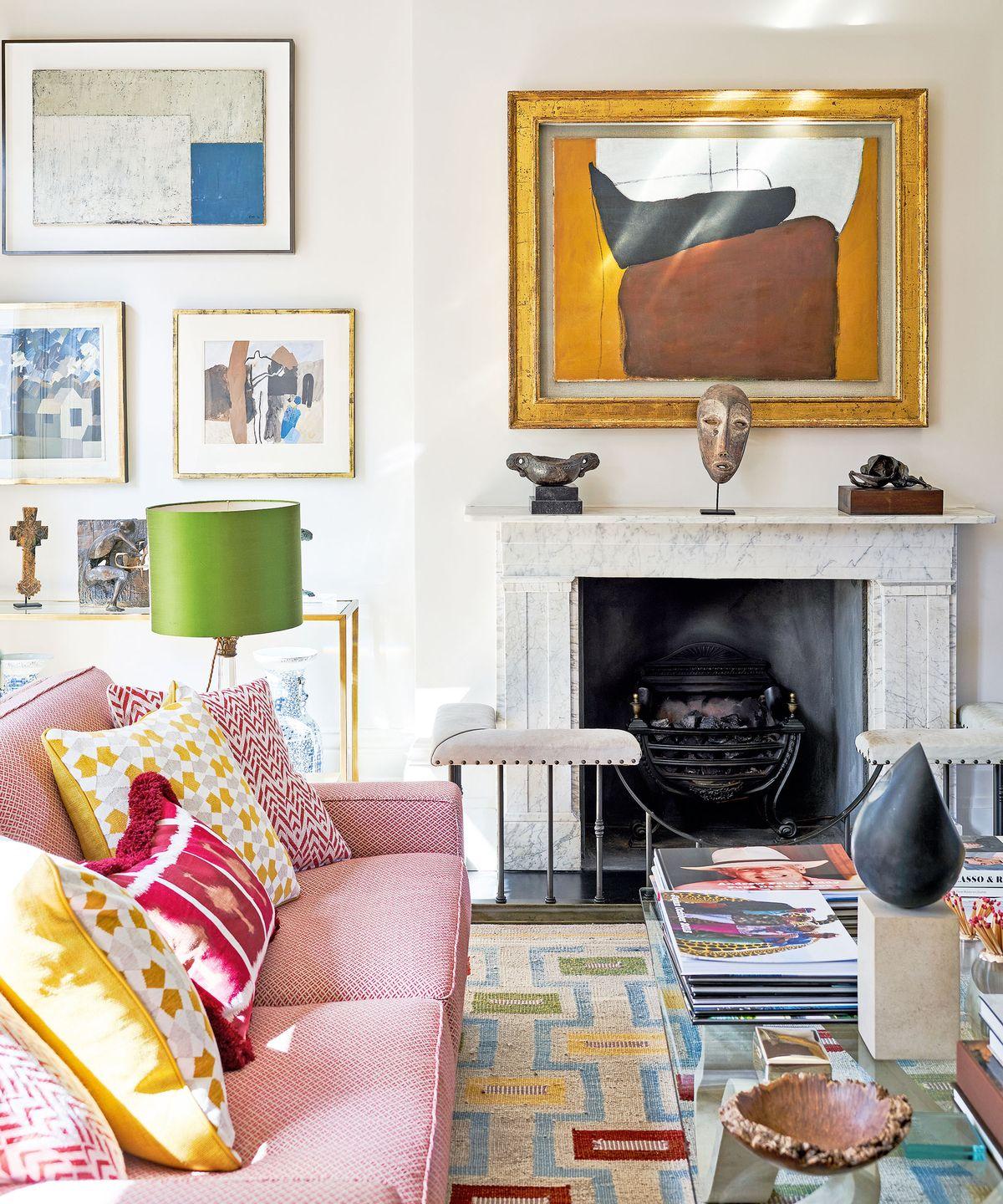
Embracing a blend of patterns can elevate your home decor from ordinary to extraordinary. Start by combining geometric shapes with floral motifs; the key is to ensure that the colors harmonize even if the patterns differ. For instance, a bold striped rug can pair seamlessly with delicate floral throw pillows, creating an engaging focal point. Mix and match polka dots with animal prints in your throw blankets and accent chairs for a playful yet sophisticated look. To ensure a visually appealing outcome, stick to a consistent color palette that ties the patterns together while allowing each to stand out.
Don’t shy away from layering textures to enhance your mixed patterns. Consider using stenciled walls or wallpapers featuring unique designs alongside hand-woven cushions. A well-placed textured pouf can introduce another element that heightens interest. If working with larger patterns, such as a large-scale floral wallpaper, offset it with smaller, subtler prints on curtains or throws. Experiment with scale and size to find balance—for example, pair large graphic art with small print textiles to create a dynamic yet cohesive aesthetic. For further inspiration, check out Apartment Therapy and see how others successfully mix and match designs!
Choose statement lighting fixtures for dramatic interior design flair
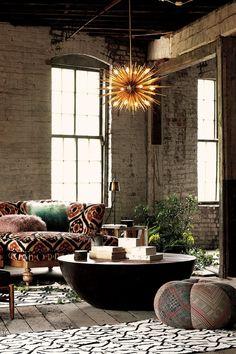
Transforming your space can be as simple as swapping out ordinary lighting fixtures for captivating statement pieces that demand attention. Whether you prefer the elegance of a grand chandelier or the edgy appeal of an industrial pendant, the right lighting can elevate your room’s aesthetic. Consider the scale and proportion of your fixture in relation to your space; a stunning oversized lamp can create a focal point, while strategically placed smaller fixtures can add layers of warmth and character. Types of statement lighting to consider include:
- Chandeliers: Perfect for dining rooms or entryways, chandeliers exude luxury.
- Pendant Lights: Versatile for kitchens or living areas, they can be hung at varying heights.
- Floor Lamps: An ideal way to add height and drama without permanent installation.
- Wall Sconces: These provide ambient light while accentuating architectural features.
Pairing your statement lighting with complementary decor can create a cohesive look throughout your room. Choose fixtures that enhance your existing palette or introduce new colors and textures to spark interest. For instance, a polished brass pendant can add a touch of warmth to a minimalistic space, while a colorful glass chandelier can serve as a bold contrast in a neutral environment. Explore options from various styles like Art Deco to Mid-Century Modern to find fixtures that align with your personal taste. To inspire your choices further, check out Architectural Digest for the latest design trends and tips.
| Fixture Type | Ideal Room | Style Inspiration |
|---|---|---|
| Chandelier | Dining Room | Elegant |
| Pendant Light | Kitchen | Contemporary |
| Floor Lamp | Living Room | Eclectic |
| Wall Sconce | Hallway | Rustic |
Opt for multifunctional furniture in small interior design spaces
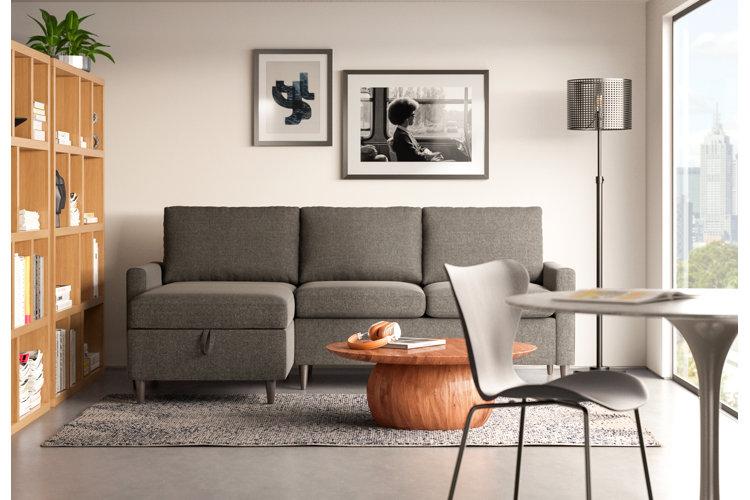
In small interior spaces, every square inch counts, and that’s where multifunctional furniture shines. Embracing innovative designs that serve multiple purposes can greatly enhance your living experience. Consider investing in furniture pieces such as:
- Sofa beds: Perfect for transforming your living room into an extra guest room when needed.
- Murphy beds: Fold down from the wall to save space during the day while providing a cozy sleeping area at night.
- Storage ottomans: Not only do they provide extra seating, but they also offer hidden storage for blankets or books.
- Convertible coffee tables: These can be adjusted to serve as dining tables or workspaces.
Additionally, creative shelving solutions can help optimize vertical space while keeping your decor organized and visually appealing. Use wall-mounted units or bookcases that double as room dividers to create a sense of flow. Consider options like:
| Furniture Type | Functionality |
|---|---|
| Sofa Bed | Seating by day; sleeping by night |
| Storage Bench | Seating with hidden storage |
| Folding Desk | Workspace that folds away |
By carefully selecting these versatile pieces, you can enhance the functionality of your space without sacrificing style. Explore more about multifunctional designs to maximize your interior on Apartment Therapy.
Play with scale to create interest in interior design areas
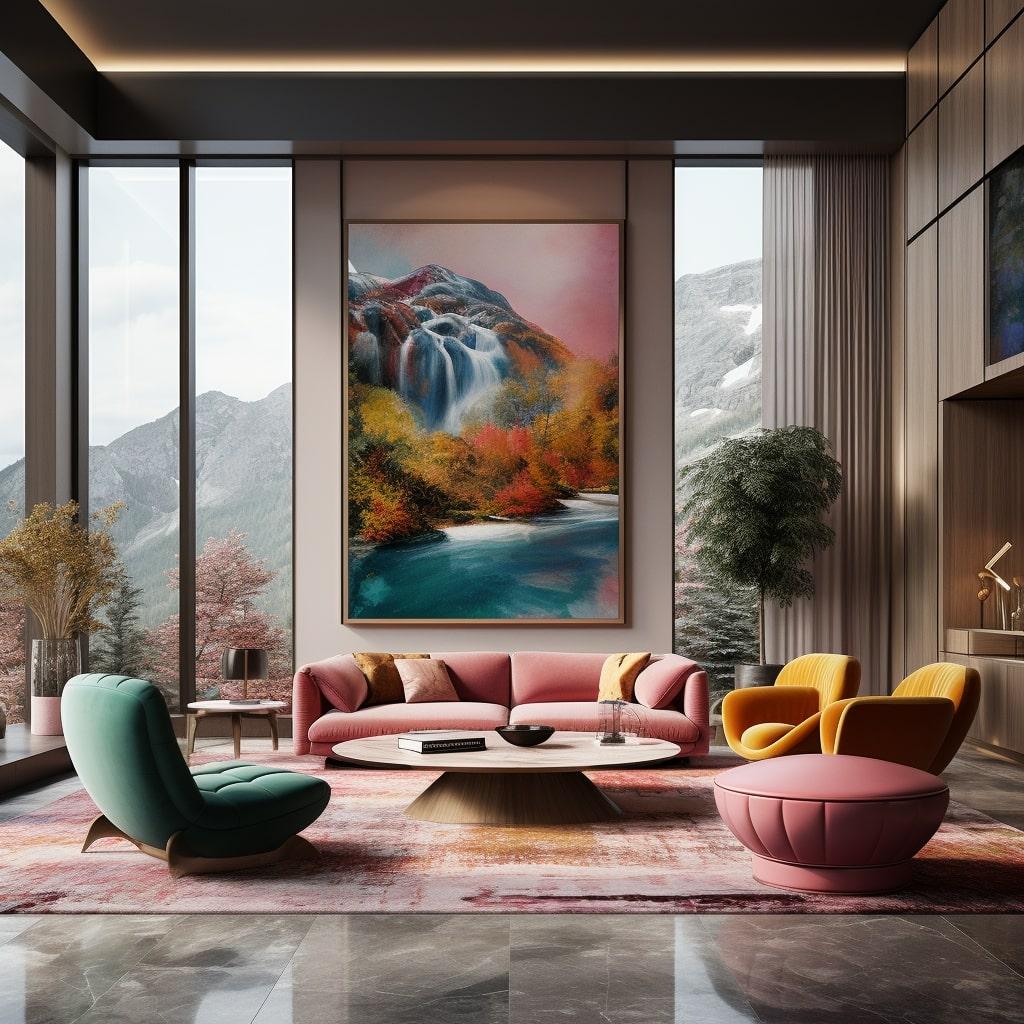
One of the most effective ways to add depth and intrigue to your interior design is by playing with scale. Incorporating oversized furniture or art pieces can create a striking focal point in a room, drawing the eye and prompting conversation. For instance, a large canvas painting can anchor a living room, while a massive floor lamp can add both function and whimsy. To balance these bold elements, consider pairing them with smaller accessories or furnishings, like delicate side tables or petite sculptures, creating a visual contrast that enhances the overall aesthetic.
Additionally, experimenting with varying heights can introduce dynamism to your space. Utilize tall bookshelves to draw the eye upward, and offset them with low-profile couches or coffee tables to invite a sense of intimacy. Layering different scales in your design not only helps to break monotony but also improves spatial flow. Think about creating a mix of low, medium, and high elements, such as a clustered arrangement of floating shelves paired with a towering potted plant in the corner. Houzz provides endless inspiration for implementing these ideas, transforming any space into a chic retreat.
Create zones using rugs to define interior design sections
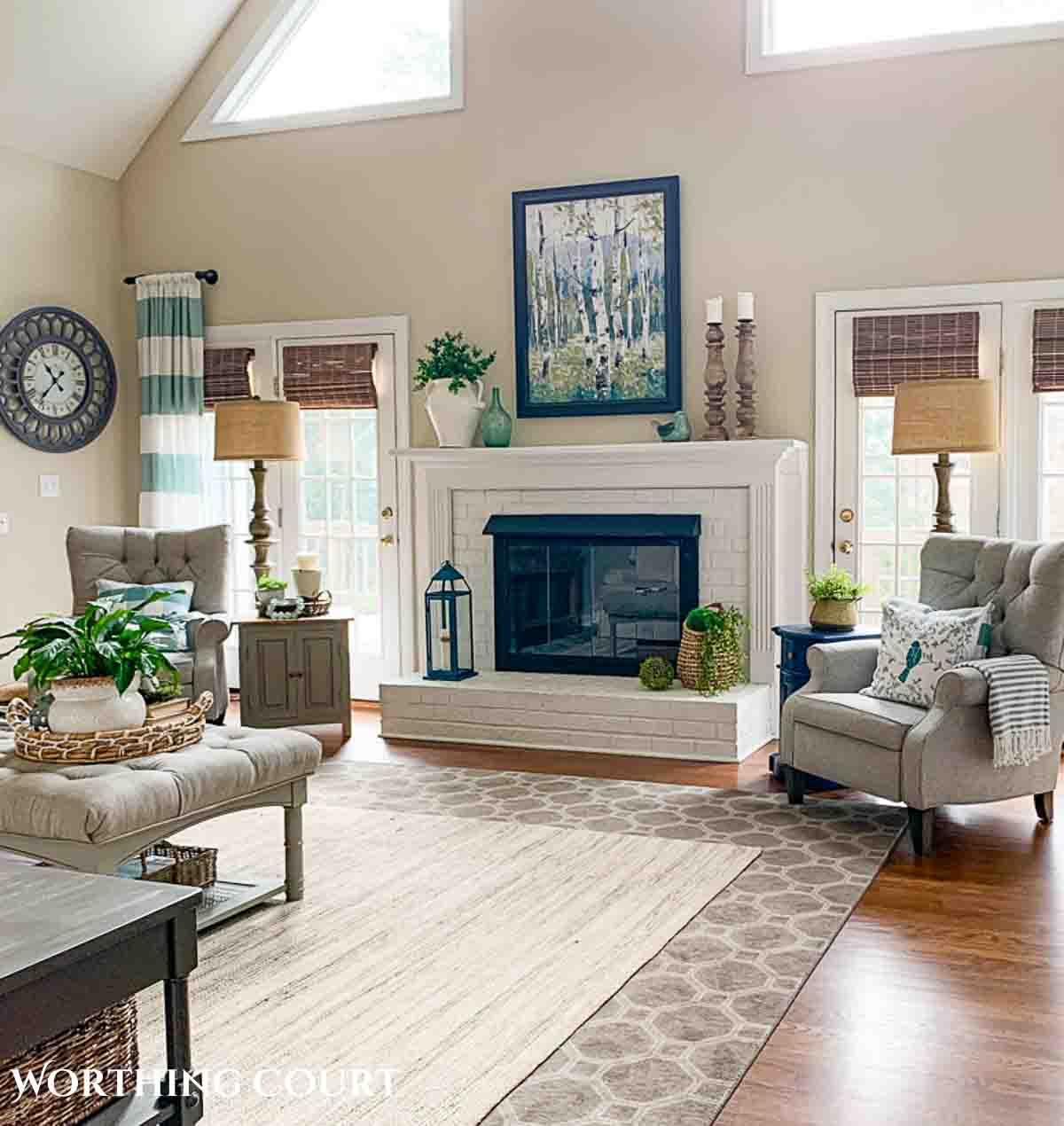
Rugs are not just for comfort; they are powerful tools for defining distinct areas within an open floor plan. By placing a large area rug in your living room, you can instantly create a cozy seating area. This is especially effective when pairing the rug with complementary furniture colors. Consider layering smaller, more decorative rugs atop a larger foundation rug to introduce texture and warmth. This technique not only separates spaces visually but also adds depth to your interior design, making the entire environment feel more curated and intentional.
In a dining space or kitchen, a vibrant runner rug can delineate the dining area from the cooking zone, adding a splash of color while ensuring practicality. For home offices, a stylish rug can serve as a focal point, demarcating the work zone and promoting productivity. Experimenting with pattern and texture in your rug choices can enhance the overall aesthetic and help define each area’s functionality. Using rugs to create zones fosters a cohesive yet dynamic space, making it accessible and inviting for both residents and guests. For more inspiration, check out House Beautiful for diverse rug styles and placement ideas.
Switch to neutral palettes for a serene interior design vibe
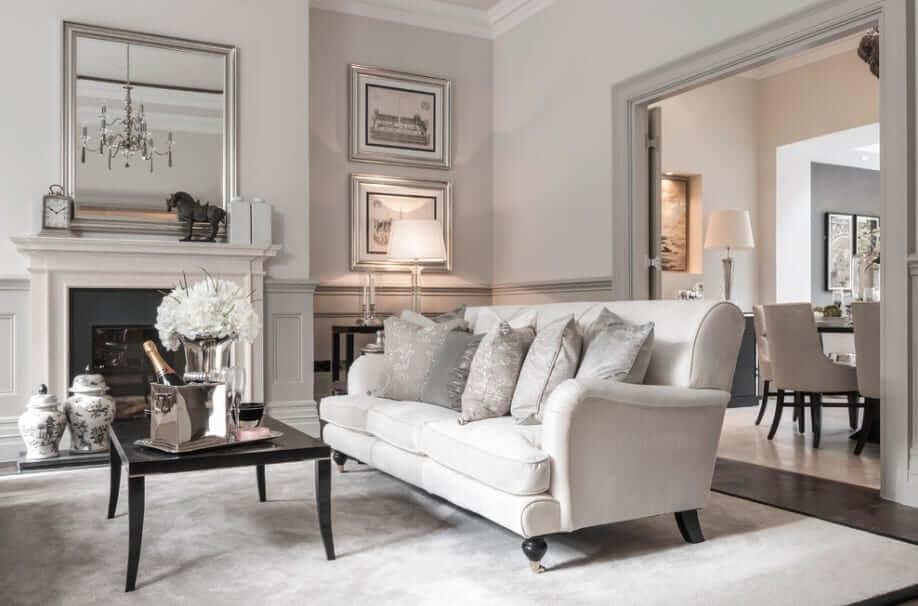
Embracing a neutral color palette can completely transform the look and feel of your space, promoting a sense of calm and serenity. Soft whites, gentle beiges, and muted greys can create an atmosphere that feels both timeless and inviting. By incorporating various textures such as cozy knits, smooth ceramics, and rustic wood, you add depth and interest without overwhelming your senses. Here are a few ways to achieve the perfect neutral vibe:
- Layering Textures: Combine different materials like linen cushions, wool throws, and wooden accents to create a balanced look.
- Natural Elements: Integrate plants or floral arrangements to bring a touch of life and soft color into your neutral scheme.
- Accent Walls: Consider a matte finish paint or wallpaper in a subtle neutral tone to define a space.
- Lighting: Utilize warm-toned lights to enhance the coziness of your neutral palette.
Additionally, exploring the use of monochromatic schemes can result in a beautifully cohesive space. By choosing varying shades of a single color, you achieve a sophisticated look while maintaining tranquility. Here’s a quick overview of how you can effectively mix neutrals:
| Color | Complementary Shade |
|---|---|
| Off-White | Soft Beige |
| Warm Grey | Charcoal |
| Sand | Eggshell Blue |
For inspiration on neutral palettes and how to style them effectively, visit House Beautiful.
Incorporate mirrors to enhance light in your interior design
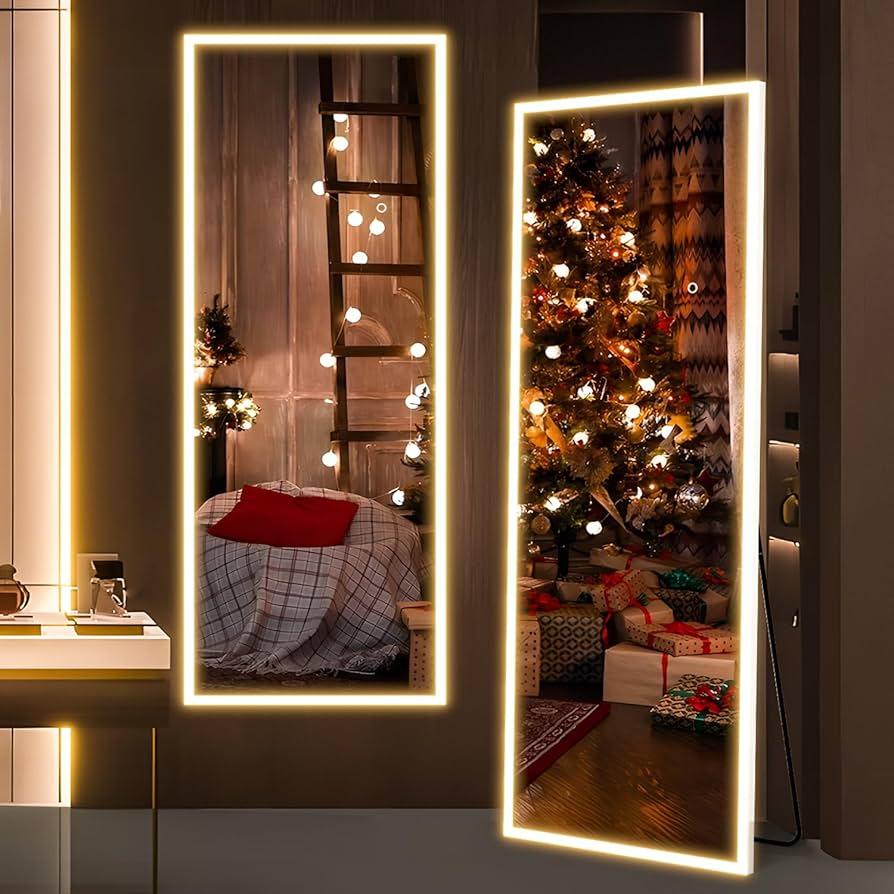
Mirrors can work wonders in making a space feel larger and brighter, serving as a beautiful tool for enhancing your interior design. Strategically placed mirrors can reflect light from windows and lamps, thereby illuminating the whole room. Consider installing a large, decorative mirror opposite a window to create the illusion of depth, or use a series of smaller mirrors arranged in an artful display. Not only does this trick contribute to a more open atmosphere, but it also adds a touch of elegance and sophistication to your decor.
When selecting mirrors, pay attention to their shapes and frames. An ornate, vintage frame can serve as a stunning focal point in a minimalist room, while sleek, modern frames can seamlessly integrate into contemporary spaces. Try incorporating mirrors in unexpected places such as above a fireplace, in hallway niches, or even as a backsplash in the kitchen. To further enhance the effect, use mirrored furnishings like side tables or cabinets that cleverly reflect surrounding decor. The right balance can induce a shimmering aesthetic that elevates your home’s charm. For more design inspiration, explore resources at Apartment Therapy.
Curate a gallery wall reflecting your personality in interior design
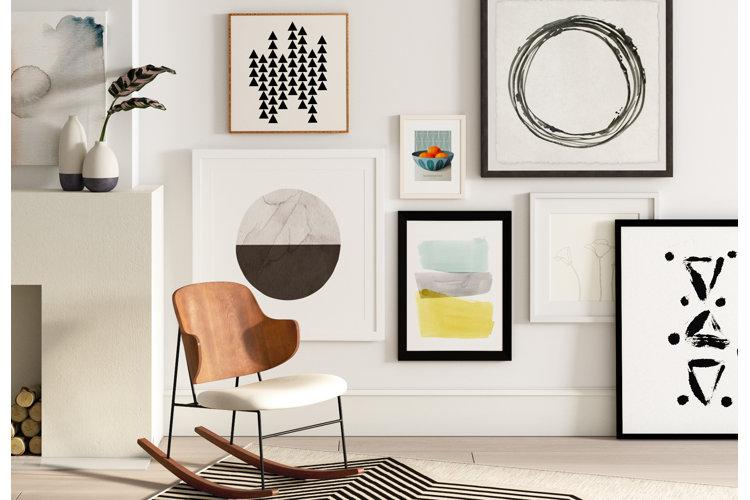
Creating a gallery wall is a compelling way to express your individuality and bring your personal story into your home. Start by selecting a variety of artworks and photographs that resonate with you—these could range from travel mementos, family portraits, to contemporary pieces you adore. Mixing framed pieces with unframed art adds depth and dimension to your wall. Don’t forget to incorporate different sizes and orientations; a well-curated display will often feature a dynamic arrangement that captures attention. Use templates to layout the arrangement on the floor first, allowing you to visualize the final look before committing to the wall. Incorporating elements like mirrors can also create an illusion of space while reflecting your surroundings and artistic choices.
To elevate the aesthetic of your gallery, consider the use of cohesive colors or themes that bind the collection together. For example, sticking to a color palette that complements your room’s decor can create visual harmony, while thematically linked pieces can narrate a story. Use the following table to get inspired with different styles and elements to include in your gallery wall:
| Style | Element | Description |
|---|---|---|
| Eclectic | Mix of Artworks | Combine various art styles like abstract, vintage, or photography. |
| Minimalist | Negative Space | Use fewer pieces for a cleaner, understated look. |
| Gallery-Style | Uniform Frames | Use similar frames to unify different artworks. |
| Textile | Woven Pieces | Add texture with tapestries or fabric art for warmth. |
Once your gallery wall is complete, take a few steps back and admire the reflection of your personality and interests. For even more inspiration, check out resources like Apartment Therapy to explore innovative display ideas and decor trends.
Use natural materials to warm up your interior design feel
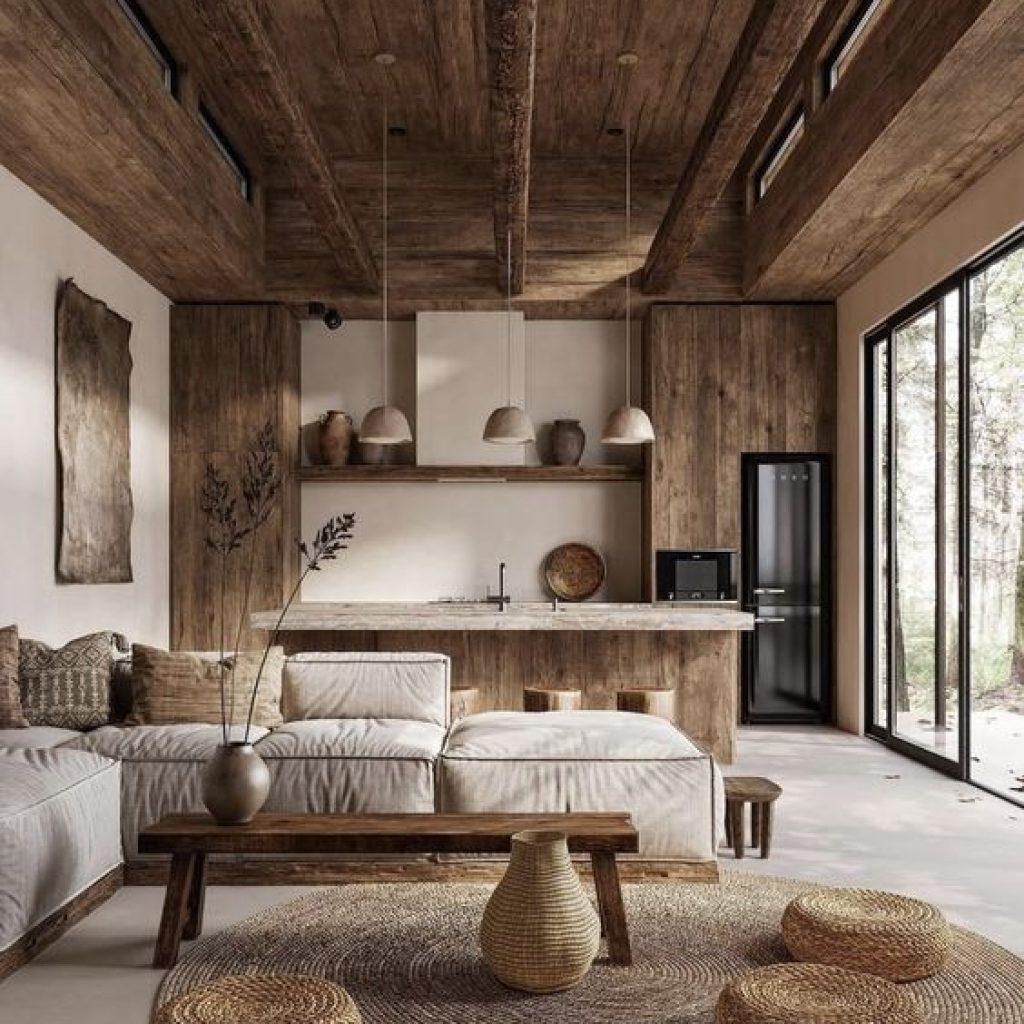
Integrating natural materials into your home can create a sense of warmth and tranquility that synthetic alternatives often lack. Consider using wood, stone, and woven fabrics to craft an inviting atmosphere. The rich textures of reclaimed wood furniture, paired with soft, organic cotton throws and handwoven baskets, add layers of comfort to any space. In addition to aesthetics, these materials promote sustainability, reflecting your commitment to the environment while enhancing the overall feel of your interiors.
Your choice of color palette can also reflect the use of natural materials. Earth tones such as rustic browns, deep greens, and soft beiges evoke a grounded, organic feel. Incorporate indoor plants to bring life and color into your decor while also improving air quality. Here’s a quick overview of some materials to consider:
| Material | Benefits | Best Uses |
|---|---|---|
| Wood | Durability, warmth | Flooring, furniture |
| Stone | Natural beauty, low maintenance | Accent walls, countertops |
| Woven Fabrics | Texture, comfort | Cushions, curtains |
Explore more about using natural elements in design at Architectural Digest.
Experiment with open shelving for stylish interior design storage
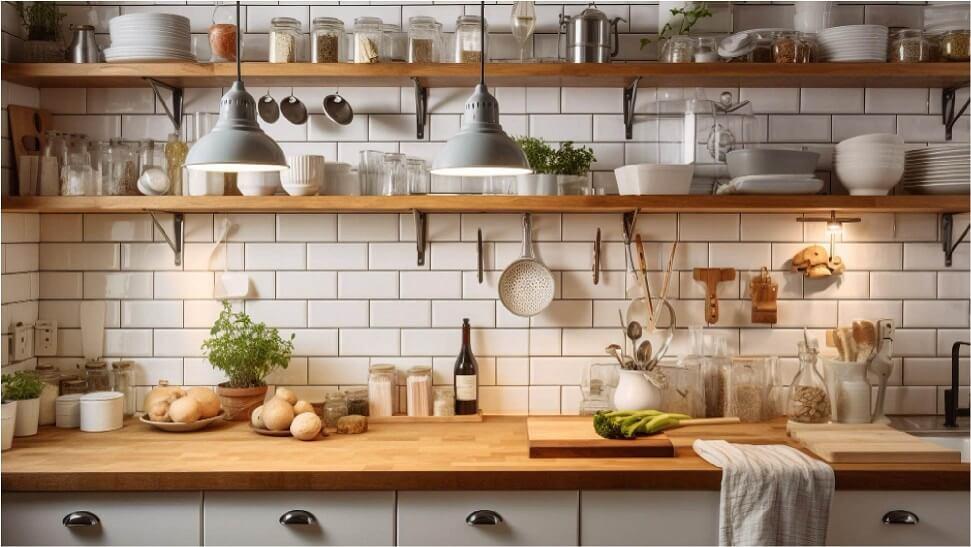
One of the most fashionable trends in interior design today is the use of open shelving, which allows for both functionality and aesthetic appeal. By replacing traditional bulky cabinets with lighter, airy shelves, you create an illusion of spaciousness while showcasing your favorite items. Consider using materials like wood or metal to complement the design of your room, giving it a personalized touch. Here are some eye-catching ideas to consider:
- Display vibrant ceramics or glassware for a pop of color.
- Incorporate greenery with potted plants to bring life into your space.
- Group items by color or theme for a curated look that develops harmony.
- Use baskets or boxes to organize smaller items while adding texture.
Additionally, open shelving can create an inviting atmosphere, making it easier to style and restyle your collections. Utilize lighting by placing LED strip lights or sconces above or below the shelves, which will not only highlight your treasures but also add warmth to the room. For practical storage, consider the following:
| Item Type | Storage Solution |
|---|---|
| Cookbooks | Stacked vertically on lower shelves |
| Art Supplies | Arranged in colorful containers |
| Collectibles | Featured prominently for easy access |
For more inspiration on open shelving ideas, check out Apartment Therapy for virtual tours and unique styling tips.
Customize cabinetry for a unique touch in your interior design
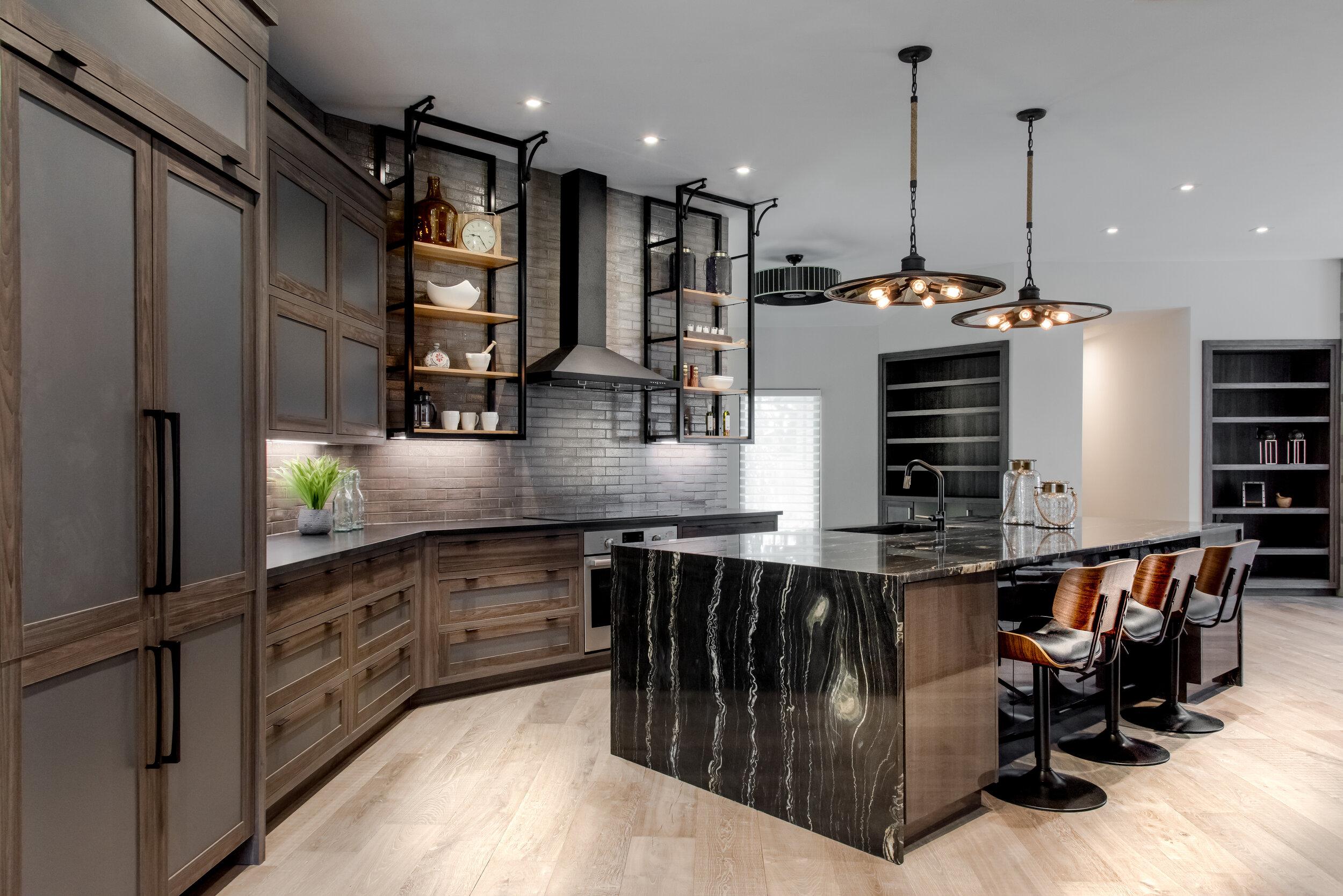
Enhancing your space with custom cabinetry can redefine the aesthetics and functionality of any room. By opting for bespoke designs, you have the opportunity to express your personal style while maximizing storage solutions. From kitchen spaces to living room built-ins, consider the following elements to elevate your interior:
- Material Choice: Choose from a spectrum of woods, metals, or eco-friendly materials that resonate with your design vision.
- Finish Options: Experiment with different finishes such as matte, gloss, or textured to create visual contrast.
- Unique Hardware: Select eye-catching knobs and pulls that serve as a focal point on your cabinetry.
- Custom Layouts: Tailor the dimensions and configuration to optimize your space’s usability while incorporating unexpected shapes.
- Integrated Technology: Innovations such as built-in charging stations or hidden appliances can offer modern functionality without compromising style.
Moreover, think about how color can transform your cabinetry. A two-tone effect, for instance, adds depth and interest; it is an excellent way to draw attention to certain areas of your home. Explore options like incorporating glass fronts to display collectibles or using decorative moldings to enhance your cabinetry’s craftsmanship. You can also use a Houzz for design inspiration and to find professionals who specialize in custom cabinetry to bring your vision to life.
Use color blocking to create bold interior design statements
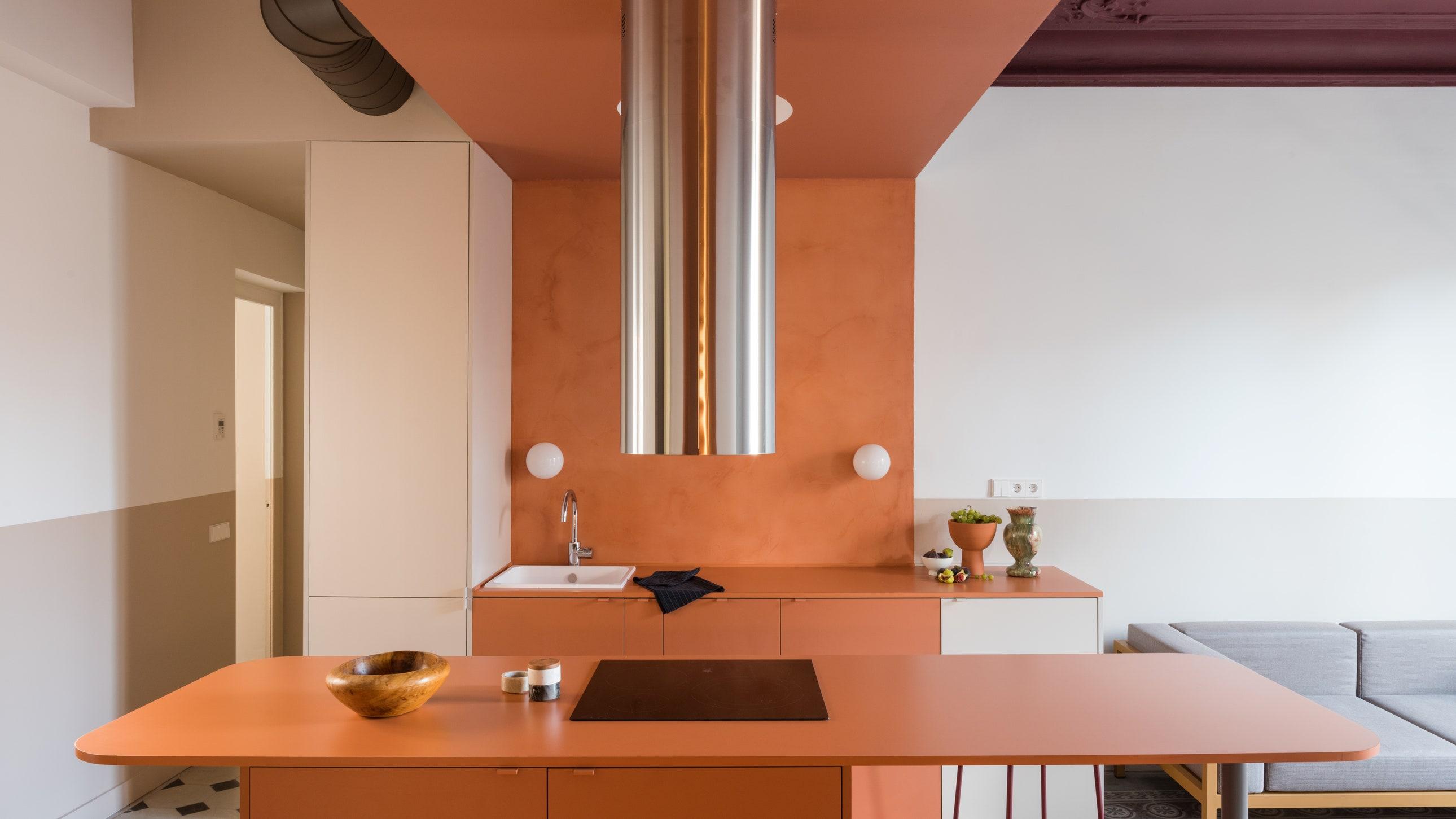
Color blocking is a powerful tool in the world of interior design, allowing you to create stunning contrasts that elevate your space to a new level. By combining bold, saturated shades, you can evoke a sense of excitement and drama. Consider using an unorthodox combination of hues, such as deep blue and vibrant orange, to energize a living room. Accent walls painted in striking colors can break away from the monotony of neutral tones, making a bold statement without overwhelming the room. When accessorizing, introduce decor items in complementary colors to create a cohesive look throughout your space.
To maximize the impact of your color blocking strategy, try experimenting with various shapes and furniture arrangements. Geometric patterns on rugs or curtains can further enhance the visual intrigue of bold color combinations. Lorem ipsum dolor sit amet, consectetur adipiscing elit. Another creative option is to apply color blocking to architectural elements like stairs, moldings, or kitchen islands, letting these features stand out dramatically. You can also explore natural materials in contrast with vivid colors, as seen in this House Beautiful example, where wooden accents play beautifully against bright painted surfaces, bringing warmth and texture into the mix.
Incorporate smart technology for modern interior design functionality
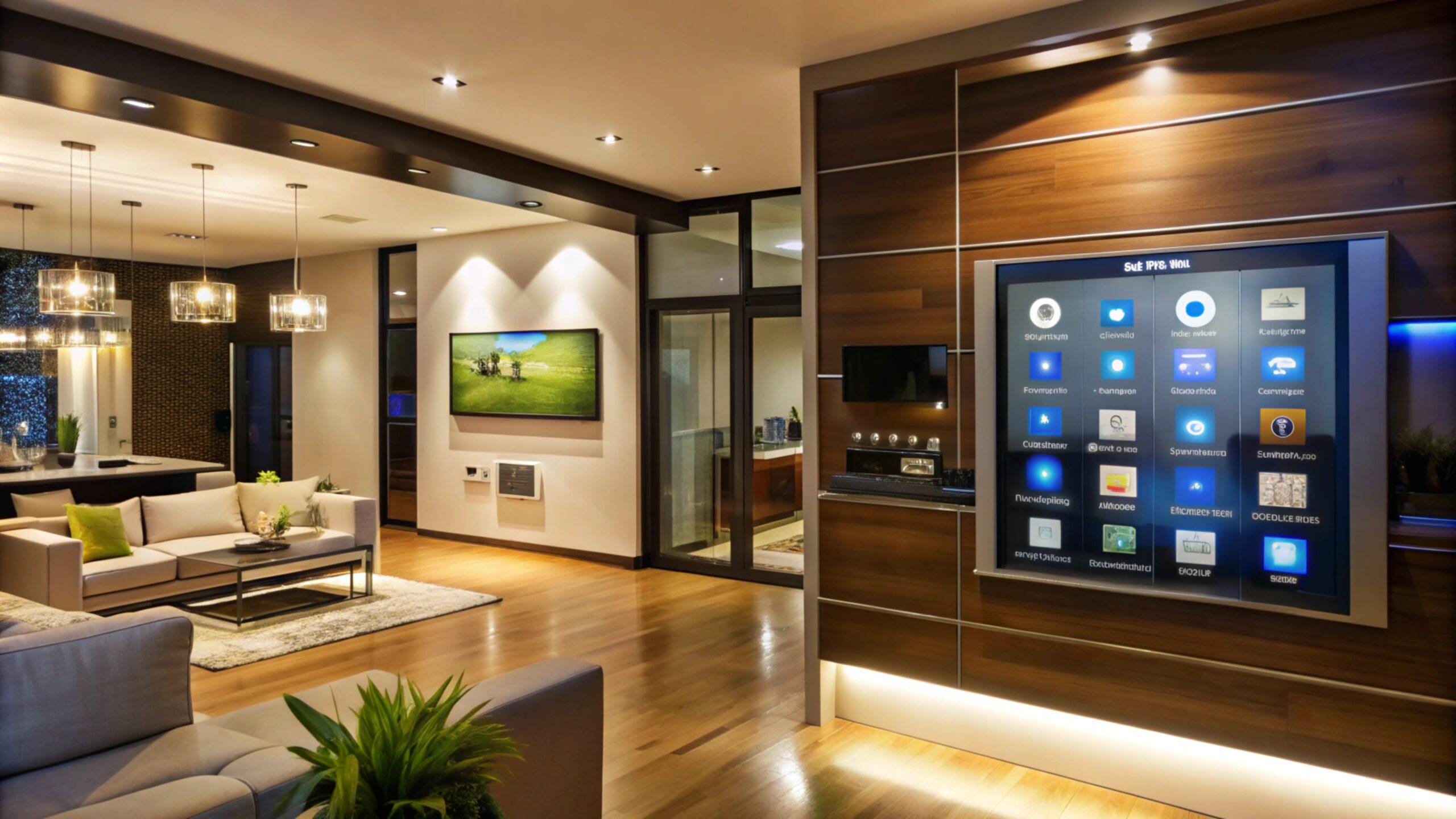
Transform your living space by integrating smart technology that elevates both aesthetics and functionality. Imagine controlling your home’s ambiance with a simple voice command; smart lighting systems like Philips Hue allow you to customize every room’s lighting with various colors and intensities, tailored to your mood and activity. Automated window treatments enhance privacy and energy efficiency, adjusting to the sunlight throughout the day. Additionally, smart thermostats can optimize temperature settings based on your schedule, ensuring comfort while reducing energy costs.
Furthermore, consider incorporating smart mirrors in your bathrooms or dressing areas. These innovative pieces not only provide an everyday reflective surface but can also display news, weather updates, and even your calendar. If you venture into the kitchen, appliances equipped with Wi-Fi connectivity can streamline meal prep with features like remote monitoring and recipe suggestions. Lastly, integrate a smart security system, comprising cameras and alarms, to enhance your home’s safety without sacrificing design elegance. With these advancements, your space becomes a blend of style and cutting-edge technology that makes life easier. For more insights on smart home technology, visit huffpost.com.
To Conclude
a well-curated space not only reflects your personality but also enhances your daily experiences. These 24 chic interior design ideas offer a wealth of inspiration, whether you’re looking to make a bold statement or simply refresh your surroundings. Remember, the key to a captivating interior lies in the thoughtful combination of colors, textures, and styles that resonate with you. So, embrace your creativity, experiment with different elements, and watch as your space transforms into a harmonious sanctuary that you’ll love for years to come. Happy decorating!
 Garden and patio decoration inspiration
Garden and patio decoration inspiration
